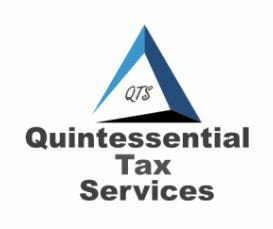What You Need To Know About the US Taxation System Before Moving To The US
People from around the world move to the US to pursue their American dream. Although the US still is the land of opportunity, it is also the land of taxation. And boy, there are so many of them! And confusing for most Americans, let alone for foreigners. Here you can learn about the basics of the US taxation system that you must know before applying for a Green Card, applying for that precious US Citizenship, or just simply get a visa and work in the US.
First, US taxation is on a Worldwide basis, meaning if you are a US "Tax Resident", you will have to pay income tax on your worldwide income and report your worldwide financial assets (such as your Bank accounts outside the US, AKA FBAR/ FinCen).
There are tax remedies to avoid double taxation by the US and your home country, such Foreign Tax Credit, Foreign Earned Income Exclusion, and Tax Treaty Benefit. These are one of the most complex US tax provisions, and if you do not want to pay taxes twice, you should consult with a CPA who is specialized in International Taxation.
There are three ways that you will become a US "Tax Resident:
Beside Federal Income tax, once you are a US tax resident, you are required by law to to report your worldwide assets. These reports do not necessarily affect your tax liability, but failing to do so has very stiff penalties ($10,000 and up per report that you failed to file).
On top of Federal income tax, you are also required to file State tax for the State in which you are living or have source of income.
If you run your own business, beside filing the business income tax return, you also must file sales and use tax return (monthly, quarterly, or annually, depending on your business).
If you think that is it, you are wrong! You are also required to file gift and estate tax, if you gift more than $15,000 year to anyone (including your own children).
If you become a tax resident, fear not! There are tools in the US tax code and tax treaty that might help you be treated as a nonresident.
Please contact us at Quintessential Tax Services for a comprehensive personalized analysis of your residency status and its tax consequences.
First, US taxation is on a Worldwide basis, meaning if you are a US "Tax Resident", you will have to pay income tax on your worldwide income and report your worldwide financial assets (such as your Bank accounts outside the US, AKA FBAR/ FinCen).
There are tax remedies to avoid double taxation by the US and your home country, such Foreign Tax Credit, Foreign Earned Income Exclusion, and Tax Treaty Benefit. These are one of the most complex US tax provisions, and if you do not want to pay taxes twice, you should consult with a CPA who is specialized in International Taxation.
There are three ways that you will become a US "Tax Resident:
- US Citizenship: US citizenship comes with a price, and that is being taxed on your worldwide income for the rest of your life, and even your after life "Death Tax aka. Estate and Inheritance Tax."
- US Green Card: Having a Green Card puts you in that privileged class who are taxed on worldwide income for the rest of your life.
- Substantial Presence Test: There is a very mechanical test based on your number of days in the US in current year and two prior years to determine your residency status. As long as you pass the SPT, you are considered a US "Tax Resident" and therefore taxed on your worldwide income. There are so many people who consult with us every year to determine what is the maximum number of days that they can stay in the US to avoid becoming a tax resident.
Beside Federal Income tax, once you are a US tax resident, you are required by law to to report your worldwide assets. These reports do not necessarily affect your tax liability, but failing to do so has very stiff penalties ($10,000 and up per report that you failed to file).
On top of Federal income tax, you are also required to file State tax for the State in which you are living or have source of income.
If you run your own business, beside filing the business income tax return, you also must file sales and use tax return (monthly, quarterly, or annually, depending on your business).
If you think that is it, you are wrong! You are also required to file gift and estate tax, if you gift more than $15,000 year to anyone (including your own children).
If you become a tax resident, fear not! There are tools in the US tax code and tax treaty that might help you be treated as a nonresident.
Please contact us at Quintessential Tax Services for a comprehensive personalized analysis of your residency status and its tax consequences.

